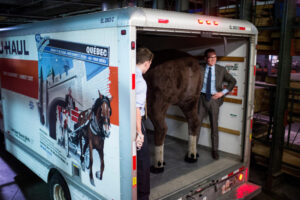Maryland Faces Critical Challenges in Unemployment Trust Fund Solvency and Transportation Planning
Maryland’s Labor Secretary Portia Wu has raised concerns about the solvency of the state’s unemployment insurance trust fund, which currently holds $2 billion and meets federal requirements. However, Wu warned that economic downturns and increased unemployment rates could rapidly deplete the fund, posing a significant risk to the state’s ability to support unemployed workers. This issue underscores the fragility of state safety nets in the face of economic instability.
In a related development, the Commission on Transportation Revenue and Infrastructure Needs, tasked with creating a long-term plan for Maryland’s transportation projects, including the Baltimore Red Line and the replacement of the American Legion Bridge, was disbanded shortly after its formation. The abrupt dissolution of the commission leaves critical infrastructure projects in limbo, raising questions about the state’s commitment to addressing its transportation needs.
Meanwhile, lobbying efforts in Annapolis have surged, with corporations, trade groups, and nonprofits spending $58 million to influence state lawmakers. This increase in lobbying expenditures highlights the growing competition for legislative attention and the potential for significant policy shifts in the state.
On a positive note, Maryland’s state parks have seen a significant increase in visitors, prompting the Maryland Park Service to implement improvements such as a new reservation system and expanded responsibilities for park rangers. This reflects the growing importance of outdoor recreation in the post-pandemic era.
Additionally, the recent federal budget signed by President Donald Trump has cut over a billion dollars from addiction and mental health services, forcing Maryland officials to reconsider the allocation of opioid settlement funds. This development poses a challenge to the state’s efforts to address the opioid crisis.
Governor Wes Moore has announced $50 million in grants aimed at reducing the number of vacant properties in Baltimore City through the Baltimore Vacants Reinvestment Initiative. This initiative represents a significant step towards urban renewal and community development in the city.
Finally, the Woodlawn community has actively engaged in the redistricting process, advocating for better services and representation. This grassroots effort highlights the community’s determination to ensure its needs are met in the face of broader political changes.
These developments collectively paint a picture of a state at a crossroads, facing significant challenges but also taking steps towards improvement and renewal.

This news story relied on content distributed by None. Blockchain Registration, Verification & Enhancement provided by NewsRamp . The source URL for this press release is Maryland Faces Critical Challenges in Unemployment Trust Fund Solvency and Transportation Planning.
. The source URL for this press release is Maryland Faces Critical Challenges in Unemployment Trust Fund Solvency and Transportation Planning.
Similar Posts



Splash Beverage Group Secures Exclusive Rights to Premium...
